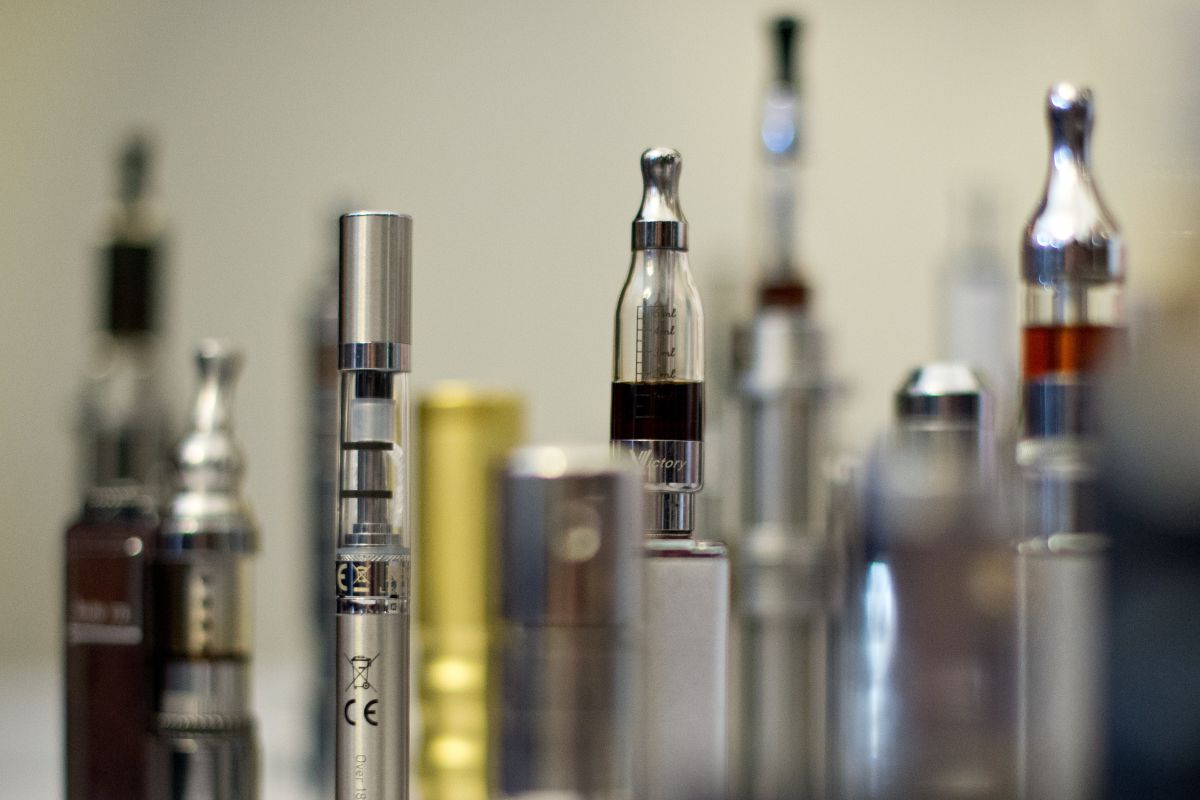London Euston bomb scare: How dangerous are e-cigarettes?
Police evacuate the station after e-cigarette explodes on the main concourse

A free daily email with the biggest news stories of the day – and the best features from TheWeek.com
You are now subscribed
Your newsletter sign-up was successful
One of London's busiest train stations was in lockdown for part of last night after a small explosion blamed on an e-cigarette sent dozens of armed officers to Euston station fearing a bomb attack.
British Transport Police described is as a "small contained explosion which is believed to have been caused by an e-cigarette which was in a bag at the station."
While no one was hurt, the explosion has raised questions about the safety of e-cigarettes. More than 2.2m Britons use e-cigarettes and vaping has been taken up at a faster rate than any other country in the EU, according to a report by the accounting firm EY.
The Week
Escape your echo chamber. Get the facts behind the news, plus analysis from multiple perspectives.

Sign up for The Week's Free Newsletters
From our morning news briefing to a weekly Good News Newsletter, get the best of The Week delivered directly to your inbox.
From our morning news briefing to a weekly Good News Newsletter, get the best of The Week delivered directly to your inbox.
What are e-cigarettes?
Electronic cigarettes, or e-cigarettes, contain nicotine vapour that usually comes in a disposable, refillable tank.
Is this the first explosion linked to e-cigarettes?
No, several explosions have been linked to e-cigarettes in the past. Surveillance video shot in New York last November appears to show an electronic cigarette exploding in a man's trouser pocket. Otis Gooding, 31, was admitted to a burn unit and required surgery, ABC reported.
A free daily email with the biggest news stories of the day – and the best features from TheWeek.com
The Manchester Evening News reported in March last year that an electronic cigarette in a local man's pocket exploded "like a roman candle". Colin Crow from Levenshulme said the blast left him with serious injuries and the heat melted the bank card inside his pocket.
eCigOne, a website dedicated to e-cigarette news and vapour reviews, has posted a list of 243 e-cigarette explosions that it calls "significant".
Who regulates vaping?
E-cigarettes are regulated in the UK under laws that include the Tobacco Products Directive 2014 and The Tobacco and Related Products Regulations 2016 , in addition to labelling, health and safety, and other legislation. Similar laws are in place across the EU.
Should e-cigarette users take precautions when vaping?
"It is important to remember that it is the battery that vents (explodes) and never the device," the Independent British Vape Association, which is a trade organisation for the UK industry, said in a statement today in response to the Euston explosion.
The organisation offers the following safety advice. More detailed information is available on its website. (http://www.ibvta.org.uk/)
• Always buy from a reputable vendor
• Check that the product or packaging displays the correct CE and ROHS markings and that the distributor can prove their authenticity
• Do not mix a battery from one supplier with a charger from another unless compatibility is specifically confirmed
• Attach the battery to the charger in accordance with the manufacturer's instructions
• Do not charge the battery close to flammable materials
• Always ensure batteries are charged using a suitable power source
• Do not leave a charging battery unattended, and ensure battery and charger connections are always clean
• Never allow your battery to come into contact with metal items such as loose change, or keys in a pocket or bag, as this can result in a short circuit of the battery